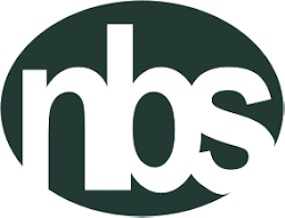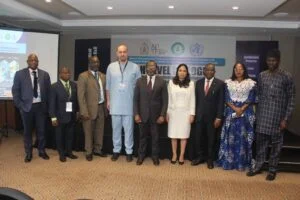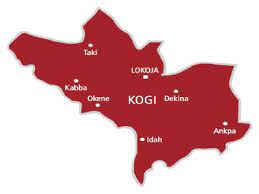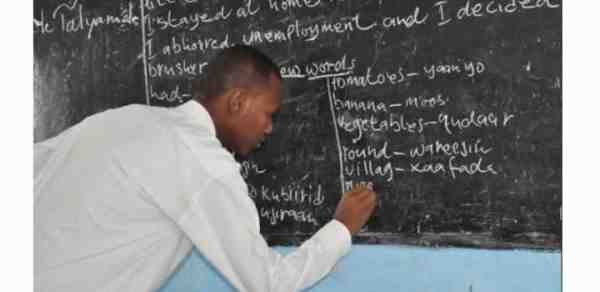BUSINESS
Import Index Grows by 0.52% between July and Sept. — NBS

The National Bureau of Statistics (NBS) says the all-commodity group import index grew marginally by 0.52 per cent between July and Sept.
It said this on Tuesday in Abuja, in the “Commodity Price Indices and Terms of Trade for Quarter Three, 2021” published on its website.
The report said the growth was driven mainly by products of the chemical and allied industries, wood and articles of wood, wood charcoal and articles, paper making materials, paper and paperboard articles.
The NBS also said that between July and August, the all-commodity group export price index averagely declined by 2.33 per cent due to decreases in the prices of mineral products, animal and vegetable fats and oils and other cleavage products and vehicles, aircraft and parts as well as vessels.
The report said that for the all-region group import index, there was a 0.52 per cent increase due to marginal increases in import prices from all the regions.
It added that the all-region terms of trade on average decreased by 2.85 per cent due to lower export prices to all the regions with rising import prices from all the regions.
“The major export and import market of Nigeria in quarter three were India, Spain, Italy, France and China.
“The major exports to these countries were crude petroleum and Liquefied Natural Gas.”
The NBS added that the major imports from these countries were motorcycles, vehicles with fuel engine, motor spirits, polyethylene and instruments, appliances and machines for measuring.
The bureau explained that Terms of Trade (TOT) represents the ratio between a country’s export prices and its import prices.
“The ratio is calculated by dividing the price of the exports by the price of the imports, usually in percentage terms.
“An increase in the TOT between two periods (or when TOT is greater than 100 per cent) means that the value of exports is increasing relative to the value of imports and the country can afford more imports for the same value of exports.” (NAN)
Economy
FCCPC Seals France, Belgium, Italy visa Centers Over Investigation Obstruction, Suspected Unfair Practices

The Federal Competition and Consumer Protection Commission (FCCPC,), has sealed off France, Belgium and Italy visa centres located at the Mukhtar El-Yakub House, Central Business District, Abuja.
The office was sealed with the combined efforts of operatives from the FCCPC, Nigerian Police Force (NPF) and the Nigeria Security and Civil Defence Corps as staff of the centre resisted the sealing.
Sealing off the centre on Thursday, Mrs Boladale Adeyinka, the Director, Surveillance and Investigations Department of FCCPC, said the move was due to failure of the centre to receive a letter of the Commission to investigate a consumer complaint.
Adeyinka said the centre was also sealed due to obstruction of investigation or inquiry and conducting services considered upon reasonable suspicion to be inimical to consumers’ welfare.
She mandated the company to apper before the Commission on June 20, to testify, make depositions and provide evidence in relation to failure to receive a letter of the Commission to investigate a complaint and obstruction of investigation or inquiry.
”This is an enforcement operation against TLS.
”As you are aware, they provide visa support services to Nigerian consumers.
”On the 25th of March 2025, based on consumer complaint, a letter was served on them to address the consumer complaint as is the process of amicable resolution of consumer complaints at the commission.
”The officers of TLS, rather than receive the consumer complaint, proceeded to assault our officers who were conducting the lawful duty of protecting and implementing the provisions of the Federal Competition and Consumer Protection Act (FCCPA).
”Upon receipt of that report, the commission directed that they should be summoned (1:25) to appear before the commission pursuant to Section 33 of the FCCPA.
”Rather than receive the summons of the commission, officers of TLS again on June 17, proceeded not only to assault our officers but also assaulted uniformed officers of the police force who were providing lawful security for the operations of the commission.
”Section 33 stipulates that any person who without sufficient cause fails or refuses to appear before the commission in compliance with a summons commits an offence and is liable on conviction to imprisonment for a term not exceeding three years or fine not exceeding #20 million or both fine and imprisonment,” she said.
Adeyinka directed that the Company would be liable for all losses and expenses encountered by visa applicants as a result of the enforcement.
However, the Management of the Company refused to comment on the matter.
The centre is being managed by TLS Contact, a Teleperformance Company. (NAN)
InfoTech
FIFA Hides More than 10 million Hate Posts, Comments

Football’s ruling body FIFA on Thursday said that it has hidden more than 10 million abusive comments in its fight against hate speech.
FIFA said it has analysed some 33 million posts and comments on 15,302 accounts since it launched its Social Media Protection Service (SMPS) at the 2022 World Cup, and made it available to all its members and players in 2024.
It said that SMPS has been used at 23 tournaments as well as in qualifying and friendly matches.
It is also available at the current Club World Cup for the 32 teams and 2,019 accounts of players, coaches and officials.
FIFA said it is using Artificial Intelligence (AI) to filter abusive posts and hide them from the account owners.
A FIFA survey has revealed that women’s players are more subjected to abuse than the men. (dpa/NAN)
Economy
CBN Takes Steps to Strengthen Banking Sector, Issues Routine Transitional Guidance

The Central Bank of Nigeria (CBN), has introduced time-bound measures for some banks still completing their transition from the temporary regulatory support provided in response to the economic impact of the COVID-19 pandemic.
According to a statement issued by Mrs Hakama Sidi-Ali, , CBN’s Acting Director, Corporate Communications Department , this is part of its ongoing efforts to strengthen the banking system.
Sidi-Ali said that the step was part of the CBN’s broader, sequenced strategy to implement the
recapitalisation programme announced in 2023.
She said that the programme, designed to align
with Nigeria’s long-term growth ambitions, had already led to significant capital inflows and balance sheet strengthening across the sector.
“Most banks have either completed or are on track to meet the new capital requirements well before the final implementation deadline of March 31, 2026.
“The measures apply only to a limited number of banks. These include temporary restrictions on capital distributions, such as dividends and bonuses to support retention of internally generated funds and bolster capital adequacy.
“All affected banks have been formally notified and remain under close supervisory engagement ” she said.
She said that to support a smooth transition, the CBN had allowed limited, time-bound flexibility
within the capital framework, consistent with international regulatory norms.
“Nigeria generally maintains Risk-Based Capital requirements that are significantly more stringent than the global Basel III minimums.
“These adjustments reflect a well-established supervisory process consistent with global norms. Regulators in the U.S., Europe, and other major markets have implemented similar transitional measures as part of post-crisis reform efforts.
“The CBN remains fully committed to continuous engagement with stakeholders throughout this period via the Bankers’ Committee, the Body of Bank CEOs, and other industry forums,” she said.
She said that the goal to ensure a transparent, Nigeria’s banking sector remained fundamentally strong.
According to her, these measures are neither
unusual nor cause for concern.
She said that they were a continuation of the orderly and deliberate implementation of reforms already underway.
She said that the CBN would continue to take all
necessary actions to safeguard the sector’s stability and ensure a robust, resilient financial ecosystem that supports sustainable economic growth. (NAN)





























